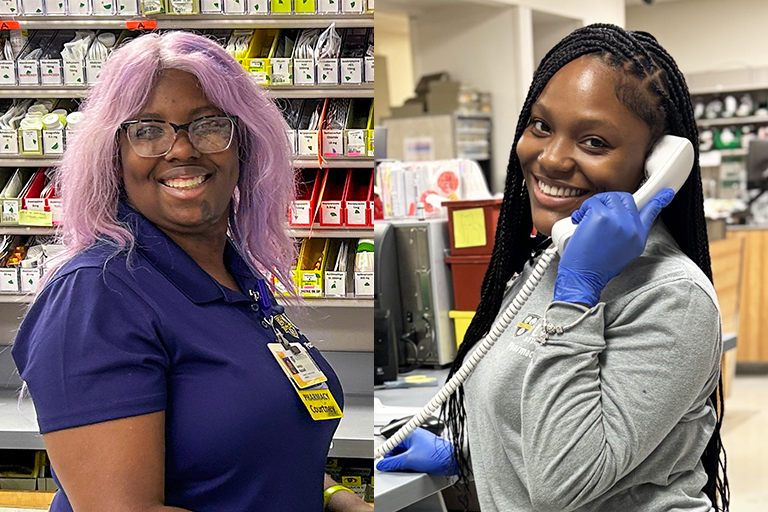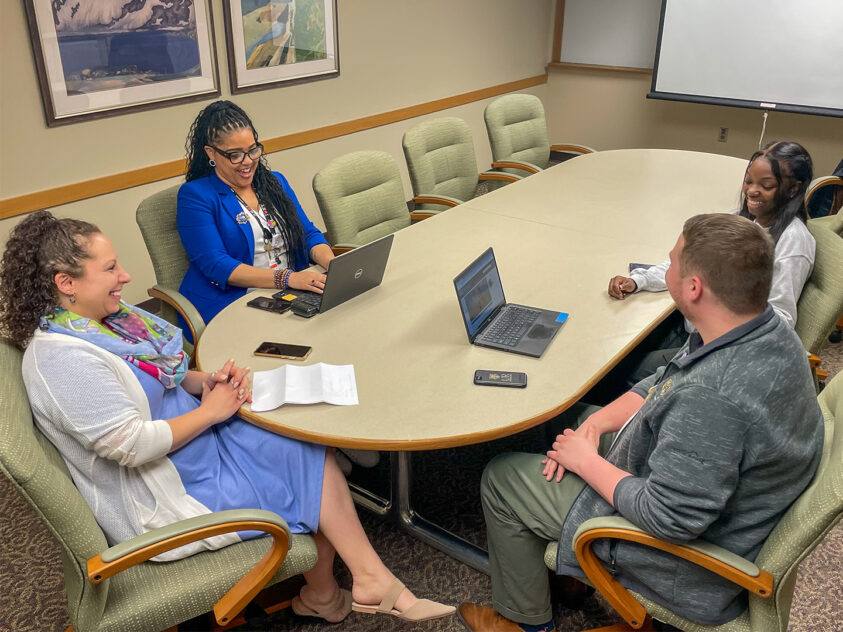
The University of Rochester celebrates our incredible employees who make us a better place to work, grow, and serve. In this series, get to know some of the many individuals who turn our mission into action each day—one story at a time.

The University of Rochester celebrates our incredible employees who make us a better place to work, grow, and serve. In this series, get to know some of the many individuals who turn our mission into action each day—one story at a time.
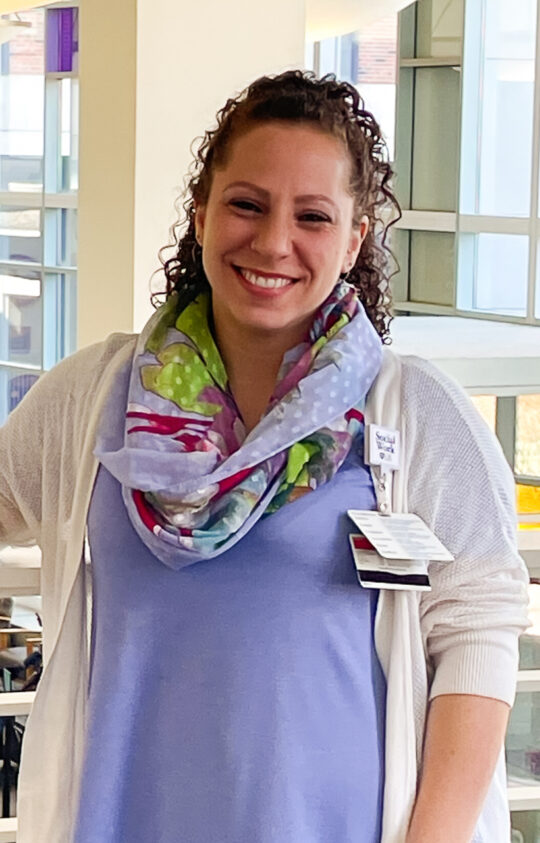
Child Neurology
How can someone tell if social work is the right career for them?
The wonderful thing about social work is that there are many different paths. You can be a care manager, a therapist, or an advocate. You can work in a school, a mental health clinic, a primary care office, or a community agency. It’s one career with a variety of meaningful roles.
What inspired you to become a social worker?
I chose social work to help others. I want to show people that someone does care—that there can be light at the end of any tunnel. The best part for me is being a part of someone’s life and making a difference, big or small.
How has URMC supported your growth as a social worker?
UR has allowed me to explore different aspects of social work in both the mental health and medical fields. It’s also allowed me to grow by recognizing my strengths and serving as a mentor by supervising social work interns.
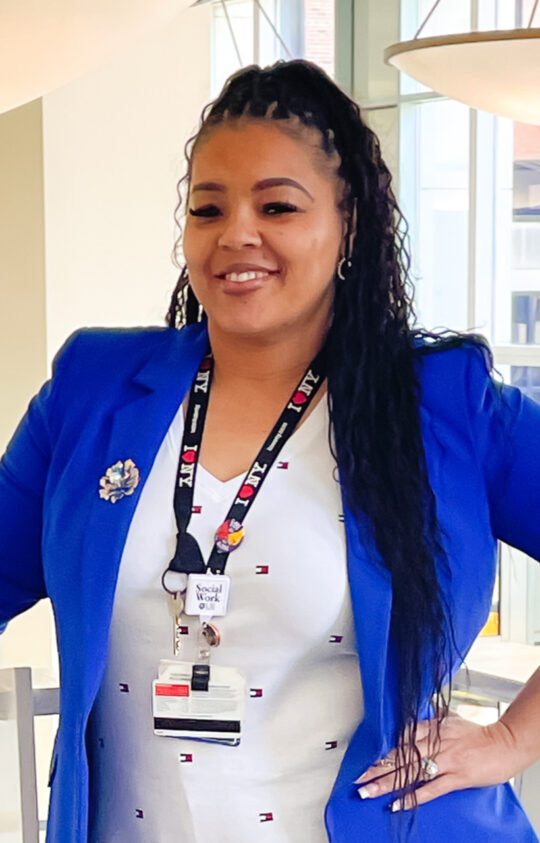
Pediatrics
What advice would you give to someone considering a career in social work?
My advice to anyone considering a career in social work is to understand that it’s not a field you enter for the money; it’s a field you get into for the love and support of people in need, mainly those in crisis. You need to be compassionate and remember, people are already going through enough, so kindness goes a long way. Lastly, we must know our limits and recognize that self-care is essential.
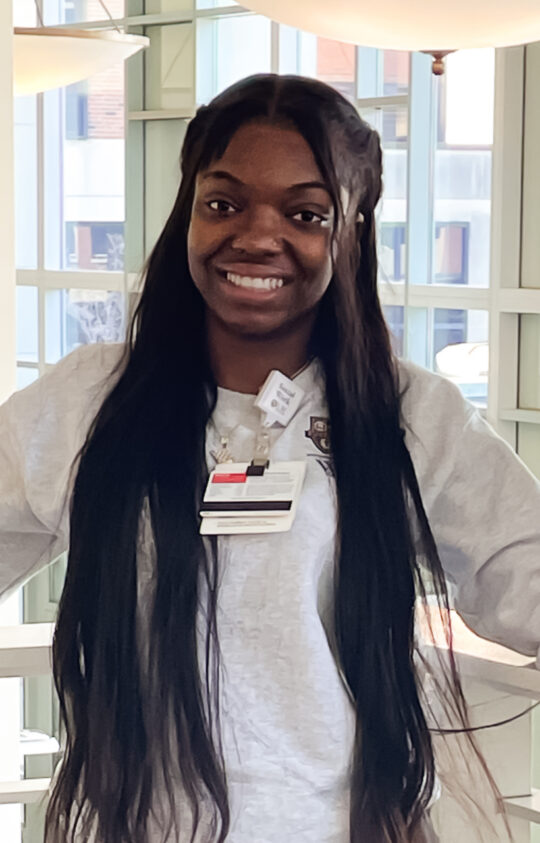
Heart Failure & Transplant Program
What’s the most rewarding part of being a social worker?
One of the most rewarding parts of this work is when clients, especially those from marginalized or minority backgrounds, see me and feel seen. There’s something powerful about representation. When a patient walks into the room and states, “You look like me, you get it,” there’s an immediate sense of safety and trust.
What inspired you to become a social worker?
I became a social worker because of my life experiences. I spent years trying to help the people closest to me, and I realized that you can’t force people to change if they’re not ready. No matter how much you love them or how badly you want better for them, they must choose change. That realization hurt, but it also gave me clarity. I decided to return to school to learn how to help people who want support and are ready for change, and appreciate someone walking beside them. That’s where I’ve found purpose. I took the pain and frustration I once felt and turned them into something that empowered others.
How has UR supported your growth as a social worker?
URMC has played a big role in my development as a social worker. I completed my advanced field placement at URMC (CPEP), and from the very beginning, I was surrounded by knowledgeable, patient professionals who were eager to teach and support me. That experience set the tone for how I view this field and the type of social worker I want to be. I have a supervisor I can go to with concerns and questions or to process challenging situations. That openness and guidance have been essential to my growth. URMC has provided a solid foundation and a space where I feel heard, challenged, and encouraged to keep learning.
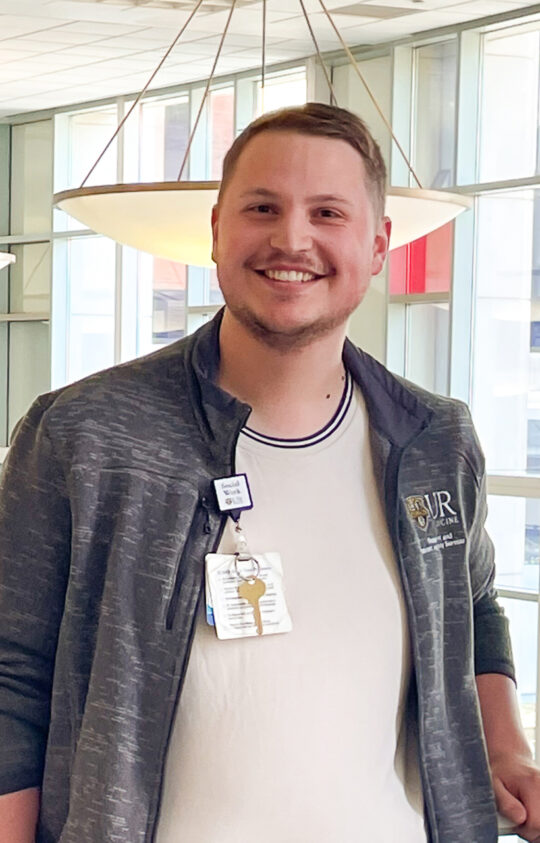
Pediatric Nephrology
What advice would you give to someone considering a career in social work?
My advice to someone entering a social work career is to be okay with being uncomfortable. There are a lot of resources and opportunities to help people, which can be overwhelming at times. Do not pressure yourself with knowing everything. We are not social workers because we have a magic wand to fix it all; we are social workers to help families navigate the system and empower them to find their right way forward.
What’s the best advice you’ve ever received in your career?
The best piece of advice I have ever received in my career is to celebrate the small victories! Changemaking does not happen overnight, so any chance we get to see a patient and their family make a small step of progress, we need to celebrate it!
What’s the most rewarding part of being a social worker?
The most rewarding part of being a social worker is watching a child bogged down by chronic illness still get to live out their life in ways that are meaningful to them. Resilience in the world of pediatric medicine is so cool to see. I love hearing a child discuss recent musical, athletic, artistic, or personal endeavors and how they achieved them, despite the cards they have been dealt.
Join our team. Explore boundless career and growth opportunities at the University of Rochester. Apply to be a social worker.
